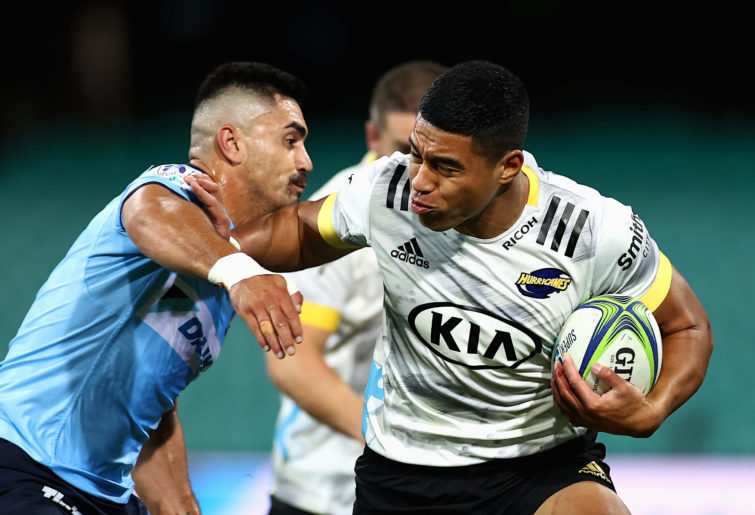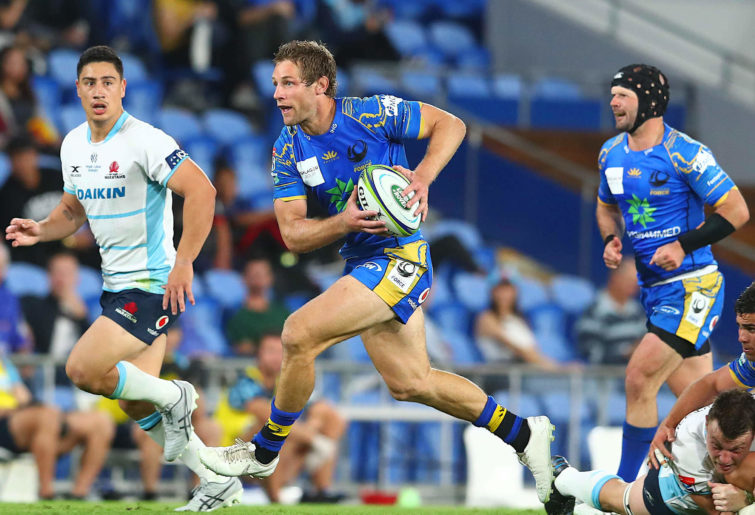Why Australian rugby should go it alone
How good was it to see 42,000 screaming rugby fans watching the two best rugby teams in Australia fight out an epic final on home soil in prime time on free-to-air TV?
Exhilarating. Spine-tingling. Rugby’s back, baby!
As a proud Brumbies supporter I’ll admit to a few sour grapes over one or two decisions on the night, but it was a fitting end to an enjoyable competition and a great night for the sport in this country.
Let’s fast-forward a week. Our teams have just been handed a reality check by our Kiwi cousins, we’re zero from five and things are not likely to get better. There was a sense that the Super Rugby AU optimism had been crushed.
Before Super Rugby Trans-Tasman started I thought the Reds and Brumbies would be competitive, with one of them a good chance to make the final, the Rebels and Force might have grabbed a win or two each, and the Tahs would provide cannon fodder for all – maybe ten to 12 wins from the 25 games.
Now I think we’ll be lucky to get five wins, and maybe one of our teams might make the top half of the table.
Any sense of optimism has evaporated. The Kiwis are just bigger, stronger and faster. Their skills are better, they play quicker and run harder and their kicking game and tactics are miles ahead. Worst of all is they’re smarter rugby players too – and I feel dirty after writing that.
At a national level the comparison between New Zealand and Australia is stark. They have created an incredible system for developing rugby players, ours is stuck somewhere around 1986; rugby is their national sport and attracts their best athletes, rugby is a fringe sport in Australia and our best athletes play league or AFL; their administration is competent, professional and laser-focused on global domination, ours are a collection of private school old boys dedicated to Scotch whiskey appreciation, leather elbow patches and propping up the Shute Shield; their coffers are brimming with private equity money, we would struggle to find enough cash to hold a chook raffle.
In short, I do not believe that Australia can sustain five competitive teams in Super Rugby. Repeated drubbings at the hands of the Kiwi teams will erode interest and support in Australia and probably in New Zealand too. If we continue with the status quo, we will go from circling the bowl to being flushed for good. So what should we do?
I will present four options, starting from the least likely.

Salesi Rayasi (Photo by Cameron Spencer/Getty Images)
Option 1
The first idea is to implement a draft that would distribute talent more equally across all teams in the competition. It’s rugby socialism, essentially moving some New Zealand players to Australian teams and shifting a number of Aussie players to New Zealand teams. A salary cap and draft would be required in this scenario to ensure fair-ish player distribution.
This would create a more balanced Super Rugby competition, would probably make the Wallabies stronger and would probably make the All Blacks weaker. Sounds awesome! It’s a good option, but the only problem is that the New Zealand Rugby Union would never, ever in a billion years agree.
Option 2
My next option is that Rugby AU finds a fairy godmother billionaire who is willing to sprinkle a portion of his/her fortune on Australian rugby – paging Andrew Forrest; other eligible billionaires may also apply. With this extra dough we could compete with European and Japanese club wages and get some of our better players back on home soil. We might also attract a higher class of foreign talent, the odd league mercenary and a few of those schoolboy superstars who flirt with union before signing with league.
I really like this option, but unfortunately fairy godmothers are in short supply.
Sports opinion delivered daily
Option 3
Next: remove two or possibly even three of our teams and consolidate their better players in the surviving teams, essentially what the New Zealand Rugby Union tried to force on us last year. The remaining teams would likely be more competitive.
A quick look at the history of Super Rugby shows we became much less competitive as we added teams. With three teams in Super 12 over ten years we had 11 semi-finalists who made six finals and won the competition twice. With four teams in Super 14 and Super Rugby (after the Force were cut) over seven years we had four semi-finalists who made one final. With five teams over seven years we had six semi-finalists and three finalists, winning the competition twice.
So who gets cut? New South Wales and Queensland have the votes on the Rugby AU board, so it’s the Force (again), the Rebels and maybe the Brumbies. We now have two or three possibly more competitive teams, but the damage to the game would be huge. Supporters of the defunct teams would be somewhere between devastated and furious, Rugby Australia would have even less revenue, there would be less content for the local broadcaster, promising players would be denied a pathway or forced overseas et cetera.
I hate this option. I like the Force and the Rebels and I support the Brumbies. Our fans deserve a team to follow. Also, the Waratahs suck.

Kyle Godwin. (Photo by Chris Hyde/Getty Images)
Option 4
Let’s bite the bullet and go it alone. Why do we need to torture ourselves with weekly comparisons to the clearly superior Kiwi teams or tear the game apart by cutting teams?
There a few options here, so let’s consider two. First, we keep Super Rugby AU and double the length. Each team plays four games against the others, giving us a 22-week competition, including four byes and finals. It’s perhaps the least risky option, but playing the same team four times in season may start to feel a bit stale.
A second option is a tweaked NRC model. Add three teams – one from NSW (Western Sydney makes sense), one from Queensland, and either another NSW team or a Fijian or Pacifica team. Eight teams playing home and away will give us an 18-week competition with two byes each and two weeks of finals.
Assuming no private equity or magic billionaire money, our existing funds would have to cover the wages and costs of three new teams, which would mean pay cuts for all existing players, and some form of salary cap and/or draft would be required too. Many of our highest profile players would leave for overseas clubs, to be replaced by club players on much lower wages.
Our policy of only selecting local players for the Wallabies would also have to be abandoned, as most of the Wallabies squad would be playing overseas until the local competition matured and was able to offer higher wages, which could take a decade or more. If the competition were successful, it could be expanded to ten or 12 teams in the future.
Obviously there are a few more options than what I’ve touched on above. If there’s a good response to this article, I will write a follow-up considering options for a domestic rugby competition in more detail.
Original source: https://www.theroar.com.au/2021/05/17/why-australian-rugby-should-go-it-alone/
https://therugbystore.com.au/why-australian-rugby-should-go-it-alone/
Comments
Post a Comment